CMS Finalizes 2.5% IPF Payment Increase and Payment System Reforms
Payment Update
The Centers for Medicare & Medicaid Services’ (CMS) FY 2025 final rule on the inpatient psychiatric facility prospective payment system (IPF PPS) implements a net increase of 2.5 percentage points. The overall update of $65 million, compared to FY 2024 payment levels, represents a slight decrease from the proposed 2.6 percentage point increase.
This update includes a market basket increase of 3.3 percentage points that is offset by a 0.5 percentage point for productivity. In addition, to maintain the mandated outlier pool of 2.0% of total payments, CMS finalized an outlier payment reduction of 0.3 percentage point to stay within this target, which reduces the number of cases that will qualify for an outlier payment. Also finalized are several adjustments to ensure that the PPS design and other changes discussed below are implemented in a budget-neutral manner. Due to these adjustments, the base per diem will be reduced from $895.63 $895.63 to $876.53.
All-Inclusive Reporting
NABH is extremely disappointed that CMS finalized a significant narrowing of its all-inclusive reporting policy, which will take effect for upcoming cost reporting periods. Current policy allows IPFs to use an alternative methodology for reporting ancillary charges on cost reports. The final rule restricts this reporting option for ancillary charges only to Indian Health Service (IHS) hospitals, tribally owned and government-owned psychiatric, and acute care hospitals. CMS overlooked NABH’s strong caution that for many “all-inclusive IPFs,” significant administrative, timing and cost considerations will make impossible a timely transition to this change.
Under the finalized timing framework, CMS contractors will begin assessing compliance with the change through a look-back process that begins following the completion of a providers upcoming cost reporting period that begins on or after Oct. 1, 2024. Specifically, all IPFs will be required to have a charge structure that allows the reporting of ancillary costs and charges on their cost reports for all ancillary services and correlating charges, such as labs and drugs.
With this change, IPFs that are currently in the all-inclusive category now will have their cost reports included in the annual IPF PPS update calculated by CMS. In prior years, because CMS calculates the annual update using the sum of routine and ancillary costs, it has been removing from the calculation the all-inclusive IPFs, as their cost reports lack data on ancillary services. The final rule notes that in 2018, because of this exclusion, 82,491 (out of 364,080 total stays) were removed from the update calculation. CMS acknowledges that this exclusion has been producing skewed updates that do not represent the costs of the entire IPF field, with approximately 55 percent of stays from freestanding all-inclusive facilities removed in 2018, and 0.3 percent of stays from all-inclusive psychiatric units.
In response to input that all-inclusive IPFs are providing full and clinically-appropriate services and that the absence of ancillary charges on cost reports is due to gained cost efficiencies, CMS states it “believe[s that] IPFs are providing these necessary services to patients.” Also that, “…maintaining an accurate charge structure would be part of a business’s accounting for reordering and restocking pharmaceuticals at a minimum, as well as more accurate payment for the purposes of outlier payments.”
Payment Increase for Electroconvulsive Therapy
For FY 2025, to achieve some alignment with outpatient rates, CMS finalized the proposed 71 percent increase for ECT payment per treatment from the current rate of $385.58 to $661.52.
IPF PPS Modifications
As mandated by Congress, CMS reviewed key IPF PPS elements with a focus on facility and patient-level adjustments, and in this rule finalizes multiple, relatively modest changes. While the agency is maintaining the rural and teaching facility adjustments, as is, the rule finalizes multiple budget-neutral changes to the structure of the PPS. As shown in Tables 4 and 5 in the rule, CMS finalized these changes:
- Added DRGs 917 (Poisoning and toxic effects of drugs w MCC) and 918 (Poisoning and toxic effects of drugs w/out MCC).
- Replaced DRGs 080 (Nontraumatic stupor & coma w MCC) and 081 (Nontraumatic stupor & coma w/o MCC) with DRGs 947 (Signs and Symptoms w MCC) and 948 (Signs and Symptoms w/out MCC.
- Removed 2 DRGs: DRG 887 (Other mental disorder diagnoses) and DRG 896 (Alcohol, Drug Abuse or Dependence w/out rehab therapy w MCC).
- Multiple changes to comorbidity payment add-ons were finalized as shown in Table 10.
IPF Quality Reporting Program
As proposed, the final rule implements one new measure: the 30-Day Risk-Standardized All-Cause Emergency Department Visit Following an Inpatient Psychiatric Facility Discharge. In response to concerns raised through public comments that its implementation may not be feasible, CMS did not finalize the proposed requirement for IPFs to submit patient-level quality data every quarter (versus the current annual basis).
CMS’ Fact Sheet on the rule provides additional information.

